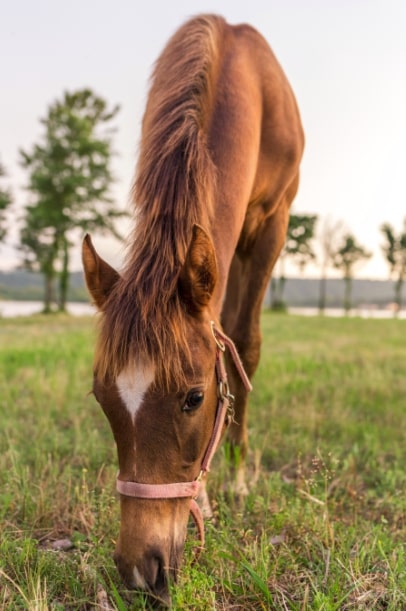We’ve written a number of articles in the past about how important it is to use wormer efficiently. That is the case with various types of livestock, including cattle and sheep. However, it also applies to horses. We want to take a closer look at this today so owners don’t run the risk of losing their animals.
The goal with wormers is to treat animals to ensure they don’t have a high parasite burden. However, a lot of users don’t utilise them effectively. This can reduce the impact and can result in animals building a resistance to the active ingredient. That can lead to major issues, including animal losses, because there are so few products available. If horses become resistant to them all, treatment is impossible.
A tough situation
The situation with horses is already very tricky. A couple of major products have been discontinued because they are no longer effective. Most notably, there was the discontinuation of Equitape in 2018. It was the only product of its type where the main ingredient was praziquantel. Its focus was specifically on treating tapeworm. Now, horse owners can only treat these worms using combination wormers.
The resistance to benzimidazole is also a huge issue. It was a common wormer for treating encysted small redworm. However, over-use means the worms are largely resistant to it today. That causes major issues because the worms can cause significant damage to the intestinal wall, especially after a period of hibernation during a cold winter. This can result in massive weight loss and even death.
Testing
A major cause of the issue is people worming horses without first seeing if it is absolutely necessary. Many owners simply got into the habit of doing it every year at the same point or points in the worst cases. However, that naturally results in over-use.
Instead of blind treatment, vets and experts advise that horse owners should first do a faecal worm egg count test. It can give a clearer idea of the parasite burden for animals. If it is high, you can treat it. However, if it is low, there is no need to use one.
Some are even suggesting that testing should be mandatory before people can even purchase wormer. There is a possibility it could become reality in the future.
Other things to do
In addition, there are a number of ways to protect animals rather than using wormers. For example, they can manage horses more effectively and keep yards, fields, and housing clean of manure. This reduces the risk of ingesting worms. Plus, never spread manure on paddocks that horses will graze.
It is also important to take care when introducing new horses. Ideally you should keep them separate and test to check their parasite burden. You can then use a treatment if necessary before introduction. This reduces the risk of introducing outside parasites to your other horses.
Do you need help with wormer?
JS Hubbuck Ltd is a fantastic company to work with because we offer such a broad selection of products. We also go one step further by ensuring we can provide advice about all of them. This really helps you to get the best from them.
So, if you need wormer and want a little help, speak to us.

